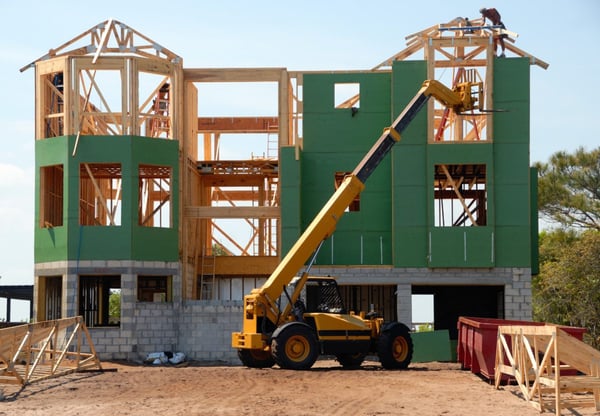If you’re a builder or investor, you may already be familiar with construction loans, but another type of loan you may need is a heavy equipment loan. Depending on the type of construction project you’re embarking on, an outright purchase of construction equipment may be unnecessary and unfeasible. On the other hand, you may be working on a very time consuming project or series of projects that could last a year or more. In any case, different types of borrowing options exist for heavy equipment. Below, we’ve outlined what an equipment loan is, how they work, and what you need to qualify for one.
What is an Equipment Loan?
In the world of construction, most equipment loans tend to be for heavy equipment like forklifts and other types of construction machinery. But all sorts of businesses take on equipment loans such as restaurants for restaurant equipment, or offices for office equipment. In essence, getting an equipment loan rather than spending large sums of money up front to buy equipment allows you to have more cash flow for other areas of your business, while simultaneously paying off your equipment and owning it. This is a great choice if you plan to use the equipment long term for future projects.
Loan VS Lease
An equipment loan and an equipment lease are two different things. An equipment loan comes from a bank or lender and allows you to own your equipment and finance it over time. This is an excellent option if you expect to get a lot of use out of it. Leased equipment is usually leased from the equipment manufacturer directly and can become very expensive in the long term. With a lease, however, you pay only the monthly fee and at the end of the lease term can return it, renew the lease, or buy the equipment at market value. But keep in mind, if you do intend to use the equipment over a long period of time, long-term financing may be the better option, as it can keep your monthly payments lower.
Do I Qualify for an Equipment Loan?
Qualifying for an equipment loan tends to be slightly easier than some other types of business loans as the equipment itself can act as collateral. In general, lenders may look at any combination of income, credit score, tax returns, and bank statements during the application process. Rates on equipment loans can vary as the type, usage, and age of the equipment play a factor as well as whether or not you put a down payment on the equipment. The range can generally be anywhere between 8% and 30%.
Heavy Equipment Licensing
Finally, keep in mind that while operating some heavy equipment requires little more than on the job training and experience, there are cases where a commercial vehicle license or other certifications are required, so it’s best to check with your jurisdiction as this varies state to state. According to Business.com, “Because of the risk involved – both to the operator and those around them – crane operators face the most stringent licensing requirements. In 2010, OSHA began mandating that crane operators complete an approved training or certification program. On top of that, most states require specific licenses and certifications of competence. These programs typically consist of written and practical skills exams.”
As with any lease or loan, be sure to check with your lender for current rates and documents needed to apply. Ask for their specific rates, and be sure to check your state laws and regulations regarding licensing and permits.

Recent Posts
- Spec Home Loans: Complete Guide to Construction Financing for Builders
- Spec Construction Loans: A Spec Line of Credit Is Worth the Paperwork
- Spec Homes and Pre-Sale Homes: Relative Benefits for a Spec Builder
- Spec Construction Success: Insights for the Investor Builder
- How Is a Spec House Different From Other Kinds of House Construction?
